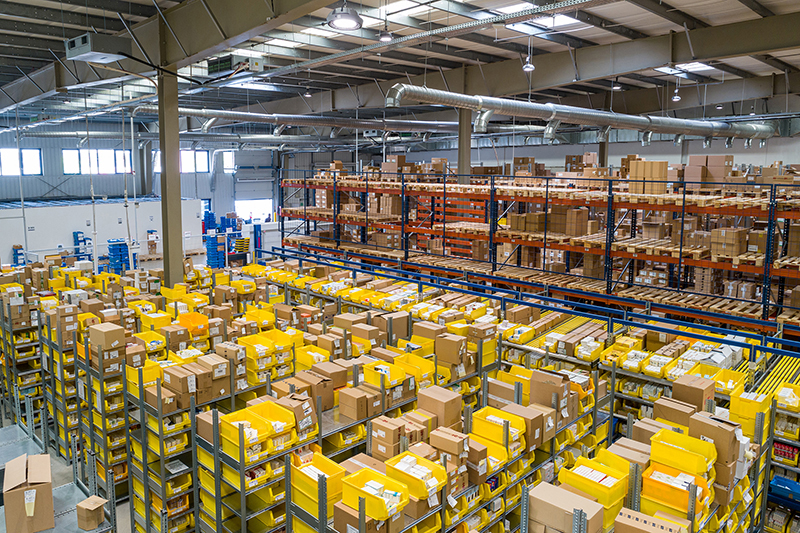Erp Systems and Construction Sector Problems in Johor Bahru Malaysia
Unique obstacles that demand creative solutions are being presented by the construction sector, amidst the fast growth of Johor Bahru, Malaysia. The rapid growth of counterpoint projects in Johor Bahru’s construction industry results in this sector straying often outside the typical roadblocks. Meanwhile, at an equal stage, there are universal problems faced in several industries. Under these circumstances, the use of contemporary ERP systems could be an attractive way of restructuring the process and improving productivity.

Extraordinary and Common Problems Confronting Johor Bahru’s Construction Sector
No industry is without its challenges, but the building sector in Johor Bahru, Malaysia, has a particular collection of problems. The quick rate of development in the area causes constructors to stress over organizing and controlling raw materials effectively, particularly considering the missing goods and changing costs. More specifically, the government often adds new rules that they want the constructors to follow. This makes it more tedious for them to comply because new rules should be strictly observed. Even the logistics aspect can be a problem with a variety of sites remaining the only sector of this nature.
On top of that, the lack of effective communication between teams located in different places and the urgent need for strong project management systems are the shared problems here as well. These same struggles are encountered in manufacturing and retail, a fact that underscores the need for good coordination for successful operation. In addition, the speed of digital transformation is a major reason behind both construction firms and others looking for services such as ERP systems.
Advantages of ERP Systems in Alleviating Construction Issues
As far as these difficulties are concerned, the use of ERP systems is essential. ERP software is not the only way to manage the operations. With the continuous development of Johor Bahru, Malaysia, the construction industry realizes that ERP systems stand out among others for many benefits. They gather data centrally and blend business processes, aiming to ensure all parts of the association are synchronized, which thus diminishes the problems of both sourcing and regulatory compliance. By the use of AI agent benefits, the firms can automate the work that brings about more efficient communication and logistics.
The use of ERP systems shapes the firm to be more effective. You can also update the layout changes you want to make in real time with the ERP system. This is a fantastic value add since the organization can oversee material limits and correctness rates while being conventional with the law. In addition, the AI that comes with an ERP software allows the firms to manage their resources in a more intelligent manner and thus achieve a project with a full integration.
Furthermore, the ability to make business flows adaptable through no programming capability is a vital reason ERP systems immerge as the adaptable solution to any fluctuating regulations or else. Of course, the fact remains the implementation of AI enhances the adaptability to the specific problems you have in the very construction sector, besides digital innovation that you have to use but do not move from its traditional ideas.
The Ways for Successful ERP Implementation
Installing the ERP system is a critical moment for a construction firm that can completely transform its functioning, but this venture must be well managed. To improve the possibility of success, firms should commence with explicitly identifying their needs to ensure that the system’s features align with the actual business requirements. Involving and educating all stakeholders from the outset is of utmost importance to achieve the smooth implementation of practices.
In addition, implementing comprehensive training programs will near the skills required for the team members to leverage the system optimally. Continual evaluation and iteration will guarantee that the system will transform along with the firm, thus consolidating the role of the system as a strategic asset. These guidelines will enable the transition to be effectively and positively seen by construction firms in Johor Bahru, Malaysia, moving to an ERP system.
What is Multiable ERP?
Multiable ERP is a cloud-native ERP widely adopted by business in Singapore, Malaysia, Hong Kong and China. With over 6,000 customers in the region, Multiable ERP gains positive feedbacks from customer across different sectors, from manufacturers, distributors, retailers, service providers to NGOs. The renowned no-code approach saves customer a big sum of customization costs and countless hours of implementation man-days.
What is LAIDFU (Let AI Do for You)?
LAIDFU is an AI tool for enterprise to build their own AI agents to perform various business AI tasks.
Proprietary EKP (Enterprise Knowledge Partitioning) technology eases CEO’s concern about trade secret leakage which often occurs in most AI agents / chatbots in the market.
EKP removes the hurdle of business AI adoption by most companies in using sensitive corporate data.
Powered by no-code approach, deployment of LAIDFU incurs far less developers (and development costs) in comparison with other AI tools.
LAIDFU empowers business, with or without an ERP system in place.
Contact us